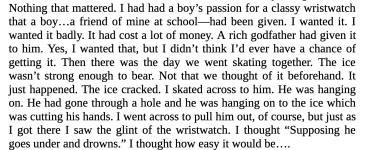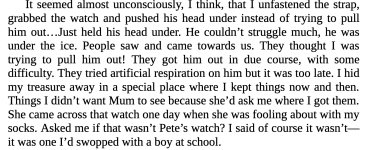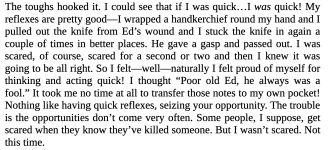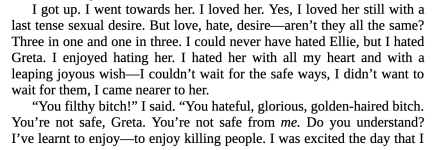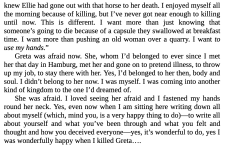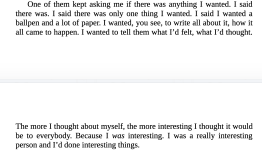S
samhasstories
Guest
I was about to type up a reply to this thread, but I think you said exactly what I was going to say - eerily close to verbatim.I'm not sure I completely understand the point of the original post, but I think I mostly disagree. There's no point in trying to lecture readers about what they are supposed to do, how they SHOULD read a story. They're going to read a story how they want to read a story, and there's nothing you as the author can do about it. When you hit the key to publish a story, you give up control over it. It will be read how it will be read. There is no right or wrong. I think it's silly to take the attitude toward your readers, "You SHOULD read my story THIS way." Nope. That's never going to happen.

